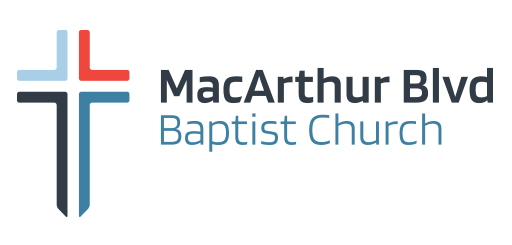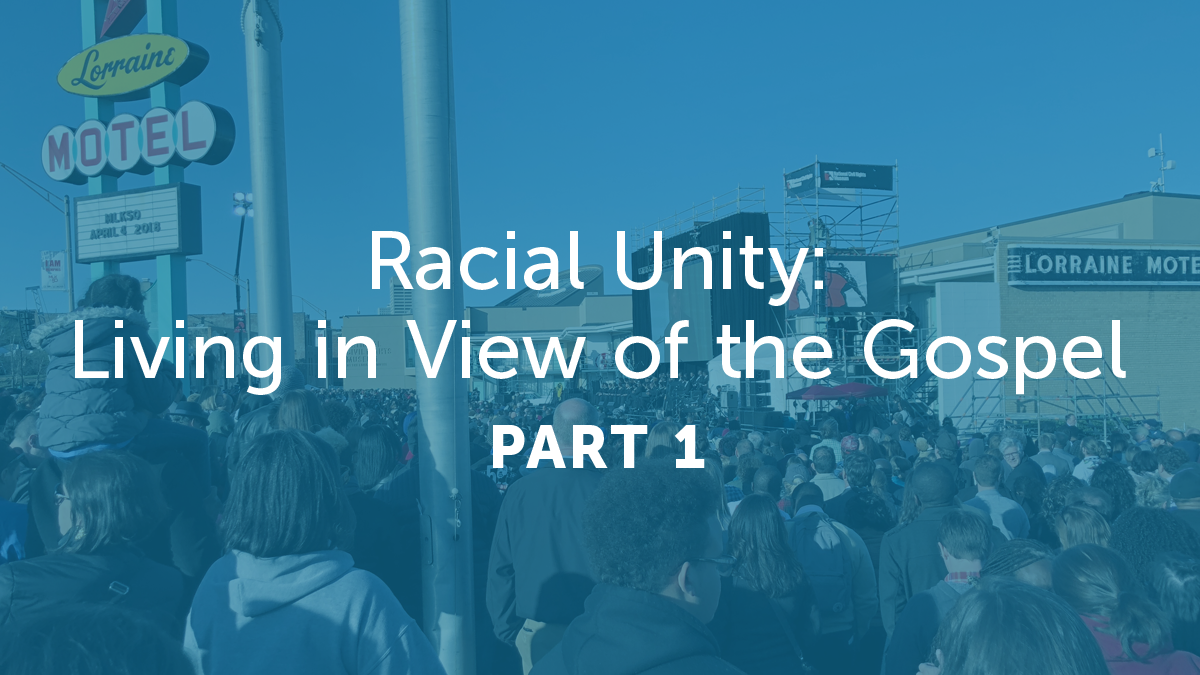RICKEY’S REFLECTIONS FROM THE MLK50 CONFERENCE – APRIL 3-4, 2018
The MLK50 Conference was sponsored by The Gospel Coalition and the Ethics and Religious Liberty Commission of the Southern Baptist Convention.
When racial controversy breaks in society, I often find myself not knowing what to say. Unfortunately, I allow my ignorance on the issue to keep me from saying anything at all. I must admit a naiveté in my own mind regarding issues of racism and racial injustice. “This is 2018,” I reasoned, “outside of a few extraordinary events, the problem of racism, at least in America, is mostly a thing of the past.”
The problem with this line of thinking is a disregard for the biblical truth that time does not heal sin. History alone cannot eradicate the problems of racial injustice. At its core, racism is a sin problem, and since it is a sin problem, its presence in society, the church, and even in my own heart will remain something against which I, and all Christians, must fight.
Pastor Keith Daniels and I recently attended the MLK50 Conference in Memphis, TN in order to become better equipped to lead MacArthur Blvd Baptist Church toward the vision of kingdom diversity. Through a two-part article written by Pastor Keith and myself, we want to share the impact this conference had on us personally and what we learned as it relates to the church in our pursuit of ethnic, generational, and socio-economic diversity.
As a 32-year old white man who grew up in southern Oklahoma, I have two factors working against me in the area of awareness and sensitivity toward racial issues: One, I am too young to have lived through the Civil Rights movement of the 1950s and 60s, and two, I have never lived in a situation where I was a part of the minority culture. I do not feel guilty for being a young, white man. I do, however, acknowledge my own blind spots when it comes to the topic of racial unity.
The MLK50 Conference exposed some of those blind spots. The conference was led by some white but mostly African American evangelical pastors and speakers. It was open, honest, and lovingly confrontational. After only a couple of sessions, I found myself feeling very overwhelmed. I was unaware of how marginalized many African Americans continue to feel in many predominately white evangelical churches. I was unaware of the continued individual and systemic racism that remains in our culture. I was even unaware of my own ignorance and silence toward racial injustices and how that silence affected my black brothers and sisters.
Most of all, I was overwhelmed with what to do with the awareness and insight I was gaining from this conference—Where do we go from here? What can I do, what can our church do, in the pursuit of social justice? Where do we begin?
In addition to feeling overwhelmed, I also found my heart full of grief—grief over my own insensitivity toward racial issues. I began to reflect back to comments I made during the 2008 presidential election when the first African American man was elected president. It was not that I said things that were overtly hateful or untruthful, but I allowed my political ideology to produce insensitivity in my heart and mouth.
I began to reflect on initial assumptions that fill my heart whenever a story breaks of a police shooting or some other accusation of racial injustice. What produces the assumption in my heart of, “Well, when all the facts are known, it will likely be seen that he had it coming.” Where does such an asinine assumption come from?
I began to reflect on my own silence toward racial issues. Apart from all the complexity surrounding racial issues in society, I have African American brothers and sisters who are hurting, who feel marginalized and alone. Why have I failed to have even one meaningful conversation with a black brother on how he’s feeling and what he is experiencing? Why do I so often disobey the command to “mourn with those who mourn” (Rom. 12:15)?
These questions of self-reflection led me to the same answer I have received countless times throughout my Christian life: “Woe is me… For I am a man of unclean lips” (Is. 6:5). As Christians, we look forward to the day of our glorification, when our lives and this world will be completely freed from the presence of sin. Until then, sin remains as an enemy in all our heats, and God used this conference to expose some deeply rooted sin in my own heart that I had to confess and repent of. When confronted with sin in your heart, the tendency is to deny or explain it away; healing, however, comes through repentance.
What do we do when we feel overwhelmed by society’s brokenness not knowing exactly what we’re supposed to do? What do we do when we are confronted with the sinful nature that remains in our hearts? What do we do? We run to the cross! We cling to and proclaim the Gospel to our own souls. Politics and legislation will never be able to cure the problem of racial injustice in our society any more than a new law is able to cure the sin that remains in my own heart. But the Gospel of Jesus Christ can heal both my heart and the brokenness of this world.
So, while I felt both overwhelmed and sorrowful during the MLK50 Conference, I left with the feeling of hope: Hopeful in the power of the risen Christ. I left hopeful in the Gospel that is able to heal my own heart and the brokenness of this world. I left hopeful in the fact that while the nations rage, God is on the move!
I also left this conference with a few key takeaways for our church family as it relates to racial unity. I share more thoughts on this in my sermon, “Intentionally Diverse”, but I want to share a few thoughts with you here.
-
As a church, we have come a long way, but we still have a long way to go.
A core value of our church is racial, generational, and socio-economic diversity. We want to be a church that reflects the kingdom, and the kingdom is not exclusively middle-class and white. We want to be a church that reflects our community, which means the diversity we are pursuing is not just black-white diversity but includes African, Asian Indian, Latino, rich, poor, and everything in-between.
It is true that our Worship Gatherings are much more diverse than most churches in the American Bible Belt. However, many of our leadership teams remain predominantly homogenous. The networks of relationships within our church, generally speaking, remain segregated around racial, economic, and generational lines. Our goal is not simply to have a diverse group of people worshiping in the same location once a week. It is to live, by the power of the cross, as a truly diverse community.
We are thankful for how far we have come as a church in this area, but we need to define reality honestly and acknowledge that we still have a long way to go.
-
Gospel unity, in the context of racial diversity, requires relationships.
The type of Gospel unity we are pursuing will require intentional relationships. We must be intentional in getting to know people who do not look or talk the way we do. Progress in this area will require effort, sacrifice, and intentionality.
The awareness, sensitivity, and conversations that will be required when the next racial controversy breaks depend upon meaningful relationships built upon the Gospel of Jesus Christ. The more we know each other personally, the harder it will be to remain unaware and insensitive to the experiences of our brothers and sisters.
-
We must live as a Gospel people by being more aware, sensitive, and vocal on issues of racial justice.
In this final exhortation, I want to speak directly to believers who are a part of the majority race. The quote by Dr. King that continues to echo in my mind is this: “In the end, we will remember not the words of our enemies, but the silence of our friends.” Many of the errors I have made over issues of race have nothing to do with what I said, but instead, with what I failed to say.
When displays of racial injustice occur in our community and country, we cannot remain silent. God hates every form of injustice, and as the people of God, so must we. We cannot pick and choose which examples of social injustice we want to care about. Choosing to stand for social justice does not require picking sides between the African American community and police officers. It requires us to choose the way of the Gospel—valuing the lives of every person, regardless of the badge they wear or the color of their skin.
The Gospel is a message about a just God who justified sinners by sacrificing His Son, thus proving Himself to be just and the justifier of those who have faith (Rom. 3:26). Justice is the heart of God and is at the heart of the Gospel. Whether it is abortion, human trafficking, or racial injustice, we cannot label these issues as “political issues”—they are Gospel issues. They are displays of broken people living in a broken world.
As a justified people, we must stand up, be vocal, and strategically proactive on matters of social injustice of every form, including racial injustice. As a Gospel people, we preach for the salvation of people, and we stand up for justice in our society. We do not have to choose between pursuing the salvation of souls and standing for social justice. Being a Gospel people requires we do both. Pursuing social justice without caring about individual salvation is foolish and unloving. However, pursuing individual salvation and not caring about social justice is inconsistent and contradicts the very Gospel we proclaim.
We must strive to become more aware of the issues and how they are affecting our brothers and sisters of different races. We must be willing to have an honest conversation, even admitting our own ignorance as well as our desire for deeper understanding.
As I stood outside the Lorraine Motel three weeks ago in Memphis as they rang the bell at 6:01, the moment Dr. King was shot, I was reminded that this world is not our home. In the book of 1 Peter, Christians are described as, “temporary residents… chosen… and set apart by the Spirit” (HCSB). America is not our home. We are temporary residents here, who live as exiles in a foreign land; our true citizenship is found in the kingdom of Christ.
We must never find our identity in our earthly citizenship, our race, or our political affiliation. Our primary aim is not to be good Republicans, good Democrats, good Baptists, or even good Anglos or African Americans. Our aim is to be a Gospel people. Our response to racial injustice must be driven not by our politics or our cultural background; it must be driven by the Gospel.
We will only fulfill our mission of leading people to trust and follow Christ if we live as Gospel people. We will display the glory of God when we, in all our diversity, unite upon the Gospel of Jesus Christ. I want to encourage you to examine your own heart and seek the Lord in pursuit of kingdom diversity for the glory of God.
- Read Racial Unity: Living in View of the Gospel – Part 2
- Listen to Rickey’s sermon, “Intentionally Diverse”
- Visit one of our Sunday services, we would be glad to have you! Plan Your Visit.

